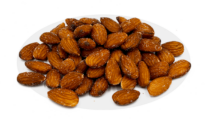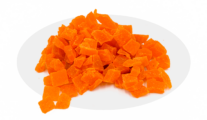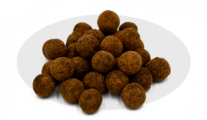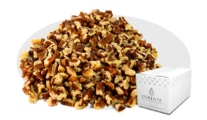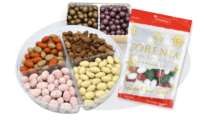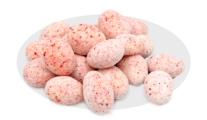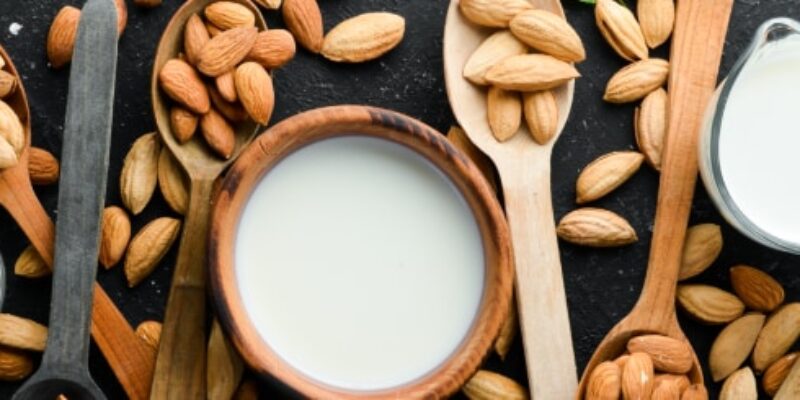Written By Sam Henselijn
How To Make Almond Milk. A few key things to know about almond milk: It is made from almond nuts. It has a nutty flavor and creamy texture. It is also an excellent replacement for dairy-free milk, because it has zero cholesterol and lactose in it.
There are two types of almond milk: sweetened and unsweetened. So, you have options if you want your almond milk with or without sugar.
Simple Steps to Make Almond Milk at Home
Making almond milk yourself is not hard. All you need to do is follow the three simple steps below.
- Soak: Put your raw almonds in a bowl, preferably a glass
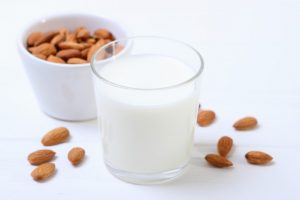 bowl, and fill with water. It would be best not to forget that your almonds will absorb moisture as they soak. Leave them to soak overnight. Then, drain and wash them the following day.
bowl, and fill with water. It would be best not to forget that your almonds will absorb moisture as they soak. Leave them to soak overnight. Then, drain and wash them the following day. - Blend: Put your soaked almonds in a blender and add four to five cups of cold water. You can also add vanilla, a sweetener you love, and a pinch of salt. These ingredients will add an extra flavor to it. And if you like, you can make the unsweetened almond milk and not add any additional ingredients. Then, turn your blender on and blend your almonds until they are smooth and creamy
- Strain: Find a cheesecloth or a nut-milk bag to strain the blended almonds into a clean bowl. After which, you would pour your it into an impermeable container. You can then store your almond milk in the fridge to preserve it.
Those are the three simple steps you would need to make almond milk. If you don’t know how to get almond nuts, click here to get our whole natural almonds to use for your almond milk.
Does Almond Milk Go Bad?
Yes, all types of milk, including homemade, refrigerated, and shelf-stable, all go bad. For homemade almond milk, it goes bad faster because no preservatives were added. So, the lifespan is between five to seven days.
The signs to look out for when it starts to go bad include:
- It turns sour. Naturally, it gives a sweet and nutty smell. So once it starts to provide a sour taste or smell, it’s going bad
- The container starts to swell once it’s bad.
- It becomes clumpy and thick.
Is Almond Milk Good For You?
It is suitable for everyone, except when allergic to almonds. It
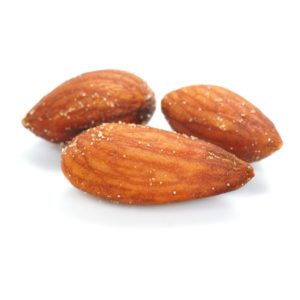
offers a lot of health benefits which include:
- It has no lactose or casein because it is dairy-free. Lactose is the cause of digestive stress in people that are lactose Intolerant. It is an excellent replacement for lactose Intolerant people to use.
- It is also low in calories. This means that you can drink as much as you want without having to bother about gaining weight
- Unsweetened it can help to manage blood sugar levels.
- It is rich in vitamin D, which helps to reduce the risks of bone and muscle deficiencies.
Learning how to make almond milk by yourself will offer you all these health benefits.
Is Almond Milk Dairy?
No, it is dairy-free. Dairy is made from the milk of mammals, especially cows. Other sources of dairy include goats, buffaloes, yaks, and camels. Almond milk, on the other hand, is an excellent replacement for dairy because it is made using non-dairy ingredients.
Additionally, it is also lactose-free. Lactose is a sugar commonly found in dairy milk. Most people find it hard to digest dairy milk because of the lactose in it. It is lactose-free because it doesn’t contain dairy. So, people who are allergic to lactose and dairy can use almond milk instead.
Does Almond Milk Have Calcium?
Yes, it contains calcium. Calcium is essential for forming and nurturing bones and teeth. You also need calcium for relaxing muscles, blood clotting, and maintaining a regular heartbeat. Adding it to your diet will provide your body with the calcium necessary to maintain healthy bone growth. One serving has about 30% of the daily calcium requirement.
Sam Henselijn Author’s Biography – Meet L’Orenta Nuts CEO
Copyright 2024 L’Orenta Nuts
L’Orenta Nuts proudly holds the SQF food safety certification, symbolizing our unwavering dedication to upholding the highest standards of food safety and quality. This certification guarantees that our products undergo rigorous scrutiny, ensuring transparency, traceability, and adherence to global food safety regulations for the utmost consumer confidence.
L’Orenta Nuts has the HACCP (Hazard Analysis and Critical Control Points) certification is a systematic approach to identifying, evaluating, and controlling food safety hazards. It ensures that food products are produced and handled in a manner that minimizes risks and complies with safety standards.
Our GMP (Good Manufacturing Practices) certification ensures that a manufacturing facility adheres to comprehensive quality and safety standards while producing pharmaceuticals, food, and other consumer goods, promoting consistency, quality, and compliance with regulatory requirements.
L’Orenta is an FDA-approved manufacturing facility and has met the rigorous standards set by the U.S. Food and Drug Administration. It demonstrates compliance with regulations, ensuring the production of safe and high-quality food products.


